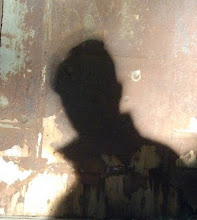Saturday, October 11, 2014
Ebola in the US: is NYC prepared?
Many of us in public health have been holding our breaths
and it is not because Ebola can be transmitted though the air. We’ve been
awaiting the outcome in Dallas. We’re not fully out of the woods just yet but
there is little cause for additional alarm.
Mr. Duncan left Liberia on September 19th, four days after he reportedly carried a woman dying from Ebola to and from her
apartment. By one account he had
held her legs while the woman’s family held her upper body. Mr. Duncan
is said to have ridden in the taxi with the woman to the hospital. The woman was refused entry at the hospital and has subsequently
died.
There aren’t any direct flights from Liberia to the US. Mr.
Duncan transferred planes in Brussels, landed in the US at Dulles International
Airport in Washington, DC and then continued on to Dallas. He was not yet ill so there wasn't any exposure to his fellow passengers. Nine days after he helped carry the Ebola patient in Liberia, on
September 24th, Mr. Duncan
began to feel ill. This is a typical incubation period for Ebola lending further credence to Mr. Duncan's likely exposure to Ebola. His symptoms were fever, stomach pain and severe headache. He
presented to the emergency department of Texas Health Presbyterian Hospital on the evening of September 25th. According to one reporter with access to the medical
records Mr. Duncan’s temperature was 103°F. The hospital performed a number of tests and eventually released him with a
prescription for antibiotics. After it was later discovered that Mr. Duncan had
Ebola the hospital admitted that protocol had not been followed. While it was
ascertained that Mr. Duncan had traveled to the US from Liberia in the 21 days
preceding his illness this information did not trigger the appropriate
response. The failure was initially
blamed on the electronic medical records system and then hospital
administrators admitted there had been a serious a miscommunication.
Since this story broke every city in the nation has asked
themselves could what have happened in Dallas happen here? There are over fifty acute care
hospitals in NYC and thousands of private practice offices and urgent care
centers. Weeks before the case in Dallas left his home in Liberia NYC hospitals
received from the health department an alert with instructions on how to screen
and isolate sick travelers from the affected countries and posters to alert
patients to announce that they had recent travel. Numerous conference calls
with hospital leadership have been held. Health Department staff have made the hospital Grand Rounds circuit to spread the word. The task while simple, must be universally applied. Ask patients about travel and immediately isolate those with fever (or worrisome symptoms) who have been in an affected country within the preceding 21 days. The city has a 24-hour hotline for doctors
to call and through that mechanism there have been nearly 100 reports (see link
below). Most of the travelers had not been to an affected country, which just
goes to prove how vigilant the NYC medical community has been. Doctors and
nurses aren’t taking any chances opting to consult with the health department
rather than risk making a Dallas-type error. And this suits everyone just fine.
You might be reassured that CDC Director, and former NYC
Health Commissioner, Dr. Tom Frieden has said there won’t be an Ebola outbreak
in the US, but here’s more reassurance: it has been 16 days since Mr. Duncan’s
illness first began and there have been no secondary cases in Dallas. The
people at greatest risk, his family and household contacts, are in quarantine.
So, even if one of them should become ill there should be no further spread. As
I said, we aren’t yet out of the woods. We must wait 21 days after the last
exposure date, the moment Mr. Duncan was placed in isolation. That date is October 19th.
Will another traveler incubating Ebola arrive in the US? It
is possible. NYC is more likely than most cities in the US to receive such a
traveler. Screening at airports, the latest defense tactic that is starting this
weekend, will only catch people who know they had an exposure and are willing
to confess this to federal authorities. Yes, we’re dubious too. At least in NYC
we are confident that the medical community is aware, vigilant and prepared,
despite what a fear mongering, headline grabbing, Professor of Health Policy
and Management might otherwise claim.
Subscribe to:
Post Comments (Atom)



No comments:
Post a Comment